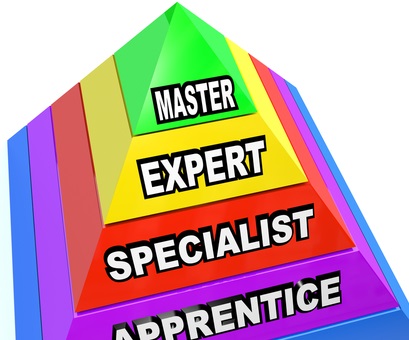
IN SEARCH OF MASTERY by James Mapes
“True mastery is really, really hard.
I think that’s one reason why few people achieve it.
It requires enormous amounts of work and persistence.
It requires time. It requires grit. It requires effort. It requires setbacks.
And many of us aren’t willing to accept that deal.
We want to achieve mastery without pain. And that’s not possible.”
-Dan Pink, author, A Whole New Mind
Mastery has very little to do with being good or even great. Mastery is more about reaching than accomplishing or arriving. Mastery of any subject is dependent on attitude as well as life balance. Mastery has zero to do with ego and everything to do with desire and passion.
Years ago, I was privileged to attend a workshop and spend quality time with George Leonard, author of Mastery and one of the giants in the human potential movement of the 1960s and 70s. He wrote, “To take the master’s journey, you have to practice diligently, striving to hone your skills, to attain new levels of competence. But while doing so…you also have to be willing to spend most of your time on a plateau, to keep practicing even when you seem to be getting nowhere.”
Sarah Lewis in her TED talk, “Embrace the Near Win,” defines Mastery as “… success is the [arrow] hitting that ten ring in the center of the target, but Mastery is knowing that it means nothing if you can’t do it again and again. Mastery is not a commitment to a goal but to a constant pursuit.”
Mastery demands a mindset that can sometimes be uncomfortable and will most certainly demand change. Mastery is something we can all achieve if we are committed to breaking through fear, managing our thinking and shedding off old, outdated, useless beliefs. Mastery is about challenging the status quo, learning to focus and see through the clutter of technological information thrown at us constantly.
What follows is merely my point-of-view, gleaned from observation, research and my own journey. Some of these suggestions may seem counter-intuitive, which is exactly the reason many cannot achieve mastery. It may seem difficult or go against learned habits or beliefs, which is also why many don’t achieve Mastery. Think Out-of-the-Box! My favorite examples of those who walk the path of Mastery are Steve Jobs, Elon Musk, Duke Ellington, Stephen Hawking, Martha Graham, John Lennon, Stephen Spielberg, Temple Grandin, Buckminster Fuller and Milton Erickson. Both living and deceased, none were compelled by money and fame but by the deep desire to explore ideas and solve problems.
- Know yourself and be authentic. Everything begins with self-knowledge. It is only when you know yourself that your words and actions become congruent with your beliefs and values. Being authentic is being yourself, not living out of guilt and trying to be what others think you should be.
- Crystalize your passion; Mastery cannot exist without your total, avid interest. Passion creates persistence through the sometimes boring discipline of constant practice.
- Crystalize your values; actions that are congruent with your values explode motivation.
- Let Go of your Ego. Achieving Mastery is not about self-absorption or wanting to fit in, nor is it about being rich, judging others, being snarky, blaming, badmouthing, complaining or being competitive. Mastery is about social and emotional intelligence.
- Be Flexible. Mastery is not about the limitations of age, but rather the willingness and fluidity to adapt to any situation, at any time in life, and being able to solve problems by viewing them in novel ways. It is the ability to flow with what life throws your way, even when it seems unfair.
- Be curious. Mastery is about learning, and learning is directly impacted by your desire, willingness and openness to explore something new and unfamiliar. When you are excited, you are curious and, when you are curious, you learn.
- Focus. The level of your focus will determine the impact of your learning.
- Manage your expectations. All anxiety is caused by living in a dead past or an unborn future. We all expect something in life, how people should act towards you, how others should act in general and how the world “should” work. When you realize you make up most of the stories you believe, that you hold onto old grudges and revenge scripts from the past, and are willing to let them go, you then learn to expect the best and prepare for the worst.
- Identify your fears and recognize when they sway you: fears are devious and manipulating. By being aware, you can be on guard. Make friends with rejection and failure, as they are the precursor to risk taking, learning and grit.
- Surround yourself with people who believe in you, that are your cheerleaders – and be willing to go it alone.
My wish is that you take the challenge, follow your passion and choose to walk the path of Mastery.

James Mapes is the founder of Quantum Leap Thinking™, creator of The Transformational Coach™, expert on the psychology of “applied imagination,” best-selling author, highly acclaimed business speaker, consultant, seminar leader and personal excellence coach.
